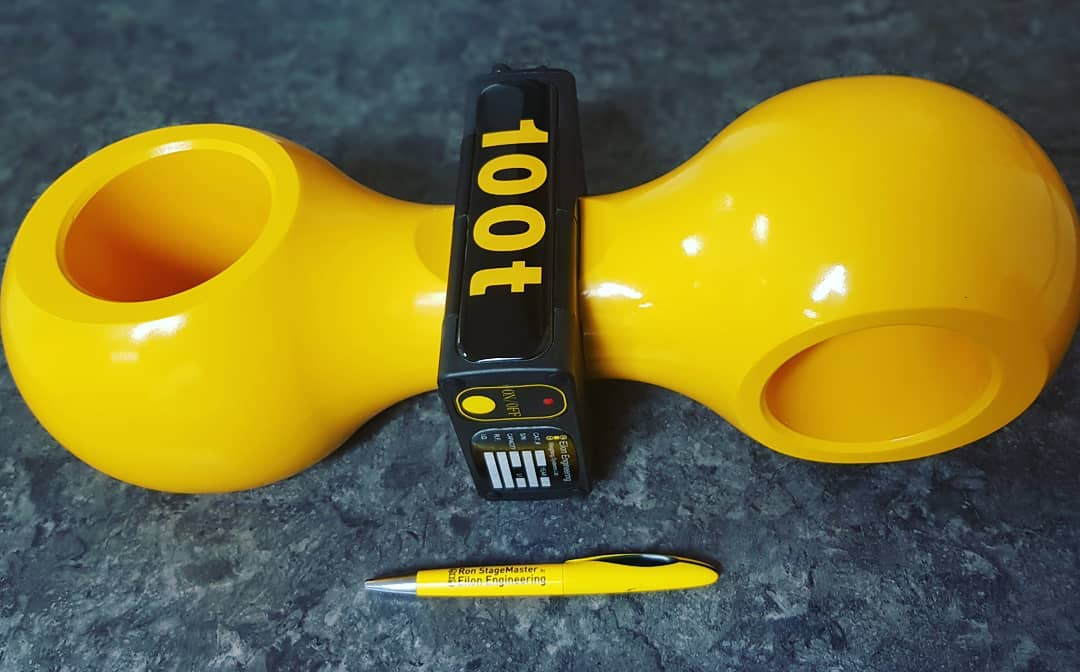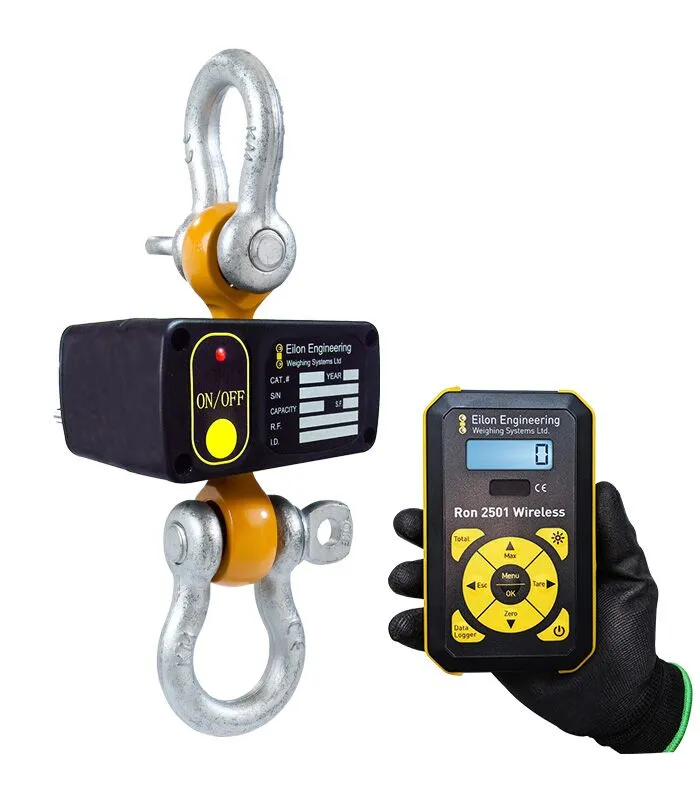Load Scale
Load scales: precision tools for measuring weight and force
When it comes to precision and durability in the world of weighing during lifting, load scales rank as a quintessential tool for businesses across a range of industries. In agriculture, transportation, warehousing and more, digital weight scales are the backbone of accurate weight and force measurement. Their unparalleled strength and reliability make them an invaluable piece of industrial equipment in settings where precision weight data is paramount.
But what exactly are load scales, and how do they work?
How load scales work: technology and applications
A load scale is a device designed to measure weight, tension, or force, usually in large industrial applications. It goes by many names including crane scale, digital dynamometer, and more. But no matter what you call it, the primary load-bearing element of the device is known as a load cell.
Load cells function via a digital force transducer that’s attached to the load cell body. This transducer is known as a strain gauge and it’s the vital component that allows strain gauge scales to provide highly accurate measurements.
A strain gauge works by measuring the deformation or “strain” on the load cell body when weight is applied, changing the gauge’s electrical resistance. This change in resistance is converted into a digital signal, which is then processed by the load cell's electronics to determine the applied load. This signal is then displayed in the chosen unit of measurement: typically in pounds, kilograms, or any other unit that a particular load scale supports.
In most load scales, the weight data is sent to the display or hand-held indicator via a wire or cable, or is transmitted via Bluetooth or radio frequency in wireless systems.

Types of load scales and their uses in different industries
There’s a lot of variety among industrial weight measurement tools. Let’s look at some of the variations and options you have when choosing a new load scale.
Analog vs. digital load scales
You might be surprised to learn that analog/mechanical crane scales still exist in the digital age.
Analog scales are cheaper to manufacture but generally less accurate and durable than digital scales. Their mechanical parts wear out faster, and their accuracy can't match a quality digital scale.
Digital scales are also more reliable and easier to read, with LED screens and remote readouts for added convenience. While analog scales typically display only one unit of measurement, digital scales support multiple units along with advanced features like TARE, ZERO, MAX, and data logging for storing and transferring measurements.
Finally, analog scales max out at 25 tons, while digital load scales can handle up to 300 tons, making digital the clear choice for high-capacity needs.
Portability
As far as portable load measurement devices, a load scale fits the bill. Many load scales, like those manufactured by Eilon Engineering, are built for exceptional portability, meaning they’re easy to transport and set up in any location. Having a lightweight design ensures they can be carried and deployed with minimal effort, even in challenging environments.
Wired vs. wireless load scales
When choosing a digital load scale, you’ll need to decide between wired and wireless systems. Wired scales connect the load cell to a display via cable, which can be hand-held or attached to the load cell body. These systems are generally more affordable, require fewer batteries, and avoid issues like signal interference. However, they offer less mobility and flexibility, pose tripping and entanglement hazards, and risk cable damage from wear or harsh conditions. Installation and teardown are also more time-consuming.
Wireless load scales, on the other hand, use radio frequency or Bluetooth to transmit data from the load cell to a remote indicator. They provide maximum operator flexibility, eliminate cable-related risks, and support multiple readouts on the same system. Wireless systems are quicker and easier to set up and take down, but they are slightly more expensive, require more frequent battery changes, and may face signal interference in certain environments.

Advantages of using load scales for daily operations
Digital load scales offer several advantages over other types of weighing systems, making them a versatile choice for many industries. One of their benefits over other types of scales is that they save valuable floor space, unlike truck and vehicle scales that require dedicated areas. This space efficiency makes them ideal for environments where room is limited.
Safety is another critical advantage. By allowing loads to be weighed directly during lifting, load scales reduce the need for manual handling, minimizing the risk of workplace injuries. Advanced models enhance functionality by offering real-time monitoring, remote control, and data logging capabilities, enabling operators to track and manage measurements with ease.
Load scales are also highly versatile, accommodating a wide range of load sizes and shapes with consistent accuracy. These features make them an indispensable tool for modern weighing needs.
Maintaining your load scale: best practices and tips
At Eilon Engineering, we’re committed to ensuring the longevity and reliability of our systems. To keep them in optimal condition, we recommend the following maintenance practices:
Cleaning: Gently clean your system with a soft, damp cloth to remove dust and debris. Avoid using abrasive materials or harsh chemicals that could damage components.
Recalibration: For consistent accuracy, we recommend recalibrating your system annually or more frequently if needed. Proper calibration ensures peak performance and reliability.
Wear and tear: Regularly inspect your system for signs of wear, such as cracks, loose components, or damaged connectors. Pay close attention to load cells and hooks, and address any issues promptly to maintain safety and performance.
Load scales vs. alternative tools: what’s the best option?
When it comes to weight measurement, high-accuracy load scales outperform other types of tools in both accuracy and cost-efficiency. Unlike general-purpose measuring devices, heavy-duty load scales are designed for precision in industrial applications. They provide highly accurate readings, even for irregularly shaped loads, ensuring safety and compliance with industry standards.
In terms of cost-efficiency, load scales eliminate the need for additional equipment like platform scales or manual weight estimations, reducing operational expenses and time. Their durability and minimal maintenance needs add to their value over time. For industries requiring reliable and precise weight measurements, load scales are the right choice.
Eilon Engineering: 50 years of excellence
Eilon Engineering has a proven history of manufacturing high-quality load scales and other weighing systems. Our systems are regularly used by high-profile clients including NASA, Boeing, SpaceX, and countless others.
Learn more about our company and products:










.png) Barcelona Jan 30-Feb 2
Barcelona Jan 30-Feb 2